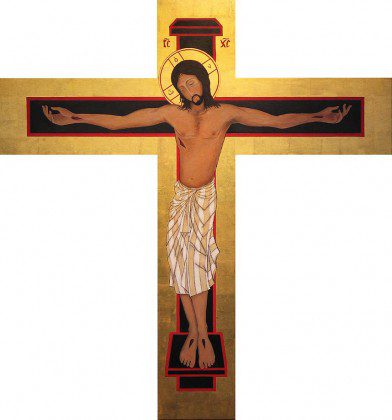“…take my soul into your most sacred wound, so that in this school of love, I may learn to make a return of love to God, who has given me such wondrous proofs of his love.”
Line 1
Each week David Schimmel, our province director of Dehonian Associates, will post reflections and prayers on the “Dehonian Spirituality” page of the website. See previous weeks’ reflections under the various headings on the left side of the Dehonian Spirituality page or use the drop-down menu at the top of this page under “Dehonian Spirituality.”
Good Friday, April 18, 2014
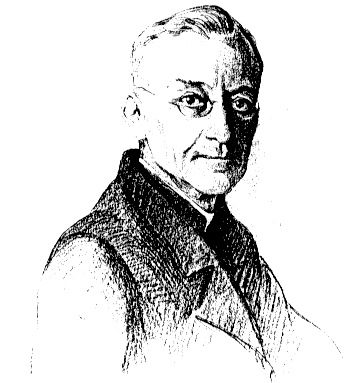 “In the mysteries of my Passion,” Fr. Dehon imagines Jesus telling a disciple, “I am truly a book written within and without (Revelation 5:1), and what is written there is my love.” In this meditation from the book, The Life of Love towards the Sacred Heart of Jesus, Fr. Dehon continues speaking in the person of Jesus. “The whips, the thorns, the nails have written it in letters of blood on my divine flesh. Do not be content to read and admire this divine writing on the outside. Penetrate to my very Heart and you will see a still greater marvel, which is love itself, the inexhaustible love that considers all that it suffers as nothing and which gives itself without ever tiring.
“In the mysteries of my Passion,” Fr. Dehon imagines Jesus telling a disciple, “I am truly a book written within and without (Revelation 5:1), and what is written there is my love.” In this meditation from the book, The Life of Love towards the Sacred Heart of Jesus, Fr. Dehon continues speaking in the person of Jesus. “The whips, the thorns, the nails have written it in letters of blood on my divine flesh. Do not be content to read and admire this divine writing on the outside. Penetrate to my very Heart and you will see a still greater marvel, which is love itself, the inexhaustible love that considers all that it suffers as nothing and which gives itself without ever tiring.
“It is the vocation of souls devoted to my Heart to strive always to discover my love under the surface of all the mysteries, and where is this more evident than in my Passion? If you do not see it there, or see it only superficially, you will draw little benefit from these great mysteries of suffering and little glory will be given to God.
“My Passion derives all its value, all its merit, not so much from my external sufferings, but from my Heart, from the love which inspired my sacrifice. I wished to endure these extraordinary sufferings in order to prove my love and to spare nothing in order to gain your love in return. Since I committed myself to my Father to suffer everything for you, I fulfilled a vow of love in all the circumstances of the Passion.”
In another mediation book, “The Love of the Sacred Heart, Three Months of Meditations,” Fr. Dehon speaks of making a return of love to Jesus, whose Heart reveals inexhaustible love. “The special purpose of the devotion to the Sacred Heart is not to imitate the Savior in his external sufferings, at least not in a direct way. The friends of the Sacred Heart do not have to impose the mortifications and terrible penances of the Desert Fathers upon themselves. Rather, they ought to strive to come close to the Sacred Heart, and as a consequence, they will be filled with loving gratitude and compassion. Dispositions such as these will prompt them to accept physical suffering generously, if Divine Providence sends it to them.
“When you have a cross, do not wish to exchange it for another; accept is as it is. Certainly, it is not against resignation to use reasonable care in the means which Divine Providence makes available and wants you to use for finding help to carry on God’s work longer and better. Respond to all that Divine Providence asks of you. Your dispositions will be perfect if you do not love suffering for the sake of suffering, nor the cross for the sake of the cross, but love the Sacred Heart of Jesus who willed to send you these sufferings or those crosses. This was the attitude of our Lord toward his Father. Ecce venio! Here I am, ready to do your will.”
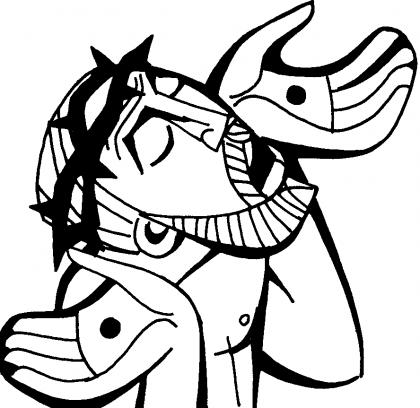 Contemplation of the Heart of Jesus means understanding and appreciating the love that motivated all his activities, and this contemplation will lead to greater conformity to his inner dispositions and attitudes regardless of the external circumstances of one’s life. This is the essence of spirituality and the definition of Christ-likeness.
Contemplation of the Heart of Jesus means understanding and appreciating the love that motivated all his activities, and this contemplation will lead to greater conformity to his inner dispositions and attitudes regardless of the external circumstances of one’s life. This is the essence of spirituality and the definition of Christ-likeness.
One of the most concise expressions of his thought on this matter can be found in the notes he took during his thirty-day retreat [using the Ignatian Exercises] in 1893. His meditation on “The Three Degrees of Humility” reveals his understanding of conformity to the will of God with precision and clarity. He notes that Ignatius characterized the first degree of humility as overcoming one’s own inclinations and humbly submitting to God’s will in all that pertains to mortal sin and our salvation. The second degree consists in being indifferent to a life of wealth or poverty, honor or dishonor, so long as one serves the will of God and avoids all venial sin. The third degree of humility, according to Ignatius, involves imitating Christ perfectly by preferring poverty and insults, rather than being esteemed as wise and prudent, because “Christ was treated in the same way before me.”
Fr. Dehon responded to this by asserting that he considered the second degree of humility as its highest or purest form. “It seems even more perfect to maintain a disposition of complete acceptance of our Lord’s will without any preference on our part. This is the spirit of our beautiful vocation. It is the spirit of our profession of love and immolation, which asks us to make frequent acts of acceptance and conformity to the divine will. Ecce venio is our motto. We ought to have it often on our lips and always in our heart.”
From How Father Dehon Read the Passion of Christ, Paul J. McGuire, SCJ
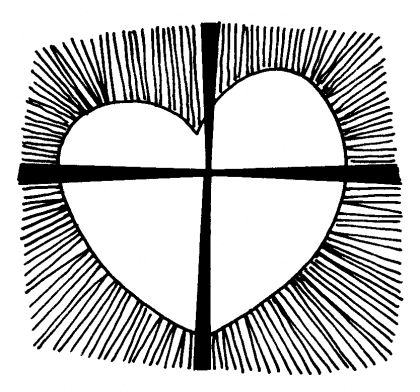 Heart of Jesus, patient and rich in mercy.
Heart of Jesus, patient and rich in mercy.
A boy about 10 years old was playing ball in the park with an adult, who appeared to be his grandmother. Standing a short distance from each other, the woman kicked the ball to her grandson. If her aim was slightly inaccurate, he watched the ball roll past him. Slowly, he would go after it, and with some encouragement, kicked the ball back.
How pained this woman must have felt to see her grandson so incapable of responding in a way that most boys do. It was evident, however, that she did not think spending this time in the park with her grandson was wasted. She continued to kick the ball to him and encouraged him to kick it back to her. Although difficult to discern what he experienced, her inexhaustible love for him, as he is, seemed certain.
This sad and loving scene epitomizes an invocation from the Litany of the Sacred Heart.
Given the circumstances of life, this grandmother is, like the Heart of Jesus, “patient and rich in mercy.” In Fr. Dehon’s thought, she is ready to do God’s will by responding to all that Divine Providence asks of her. Her life is a book, and what is written there is her love.
wh
wh
 When contemplating Jesus’ passion, what most stirs you?
When contemplating Jesus’ passion, what most stirs you?
What do you consider to be the most important aspect of personal sacrifice or suffering?
What is the cross that you bear?
How would you describe the manner in which you bear this burden?
Where do you find help in bearing this burden?
wh
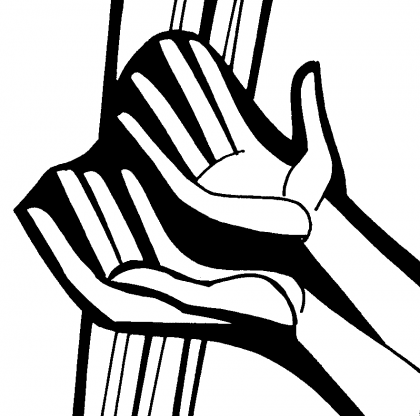 In your kindness throughout the coming week, please remember in your prayer all those who have particularly difficult crosses to bear, especially for children who are abused, traumatized by war, or are dealing with physical, mental, or emotional challenges, and those who care for them.
In your kindness throughout the coming week, please remember in your prayer all those who have particularly difficult crosses to bear, especially for children who are abused, traumatized by war, or are dealing with physical, mental, or emotional challenges, and those who care for them.
As you hold gently the crosses that Divine Providence sends you, use this prayer of reparation, adapted from the prayer book of the Priests of the Sacred Heart.


